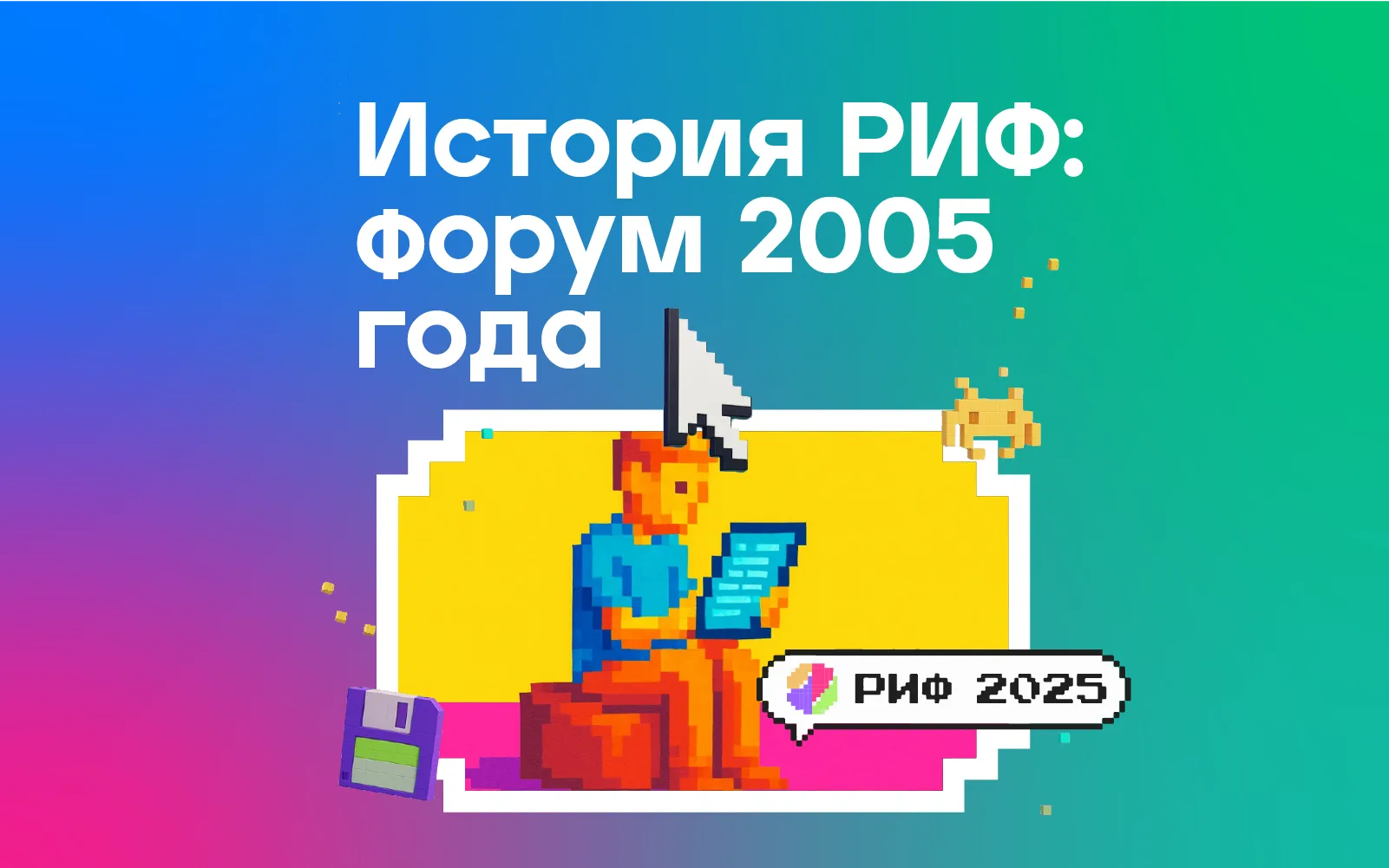RIF 2005
“Dear Vladimir Vladimirovich, participants of the Russian Internet Forum—representatives of Russia’s small and medium-sized businesses—are forced to address you with deep concern about the future of commercial enterprises operating in telecommunications…” This open letter, drafted at the end of the 2005 forum, became Runet’s direct appeal to the president of Russia.

Forum Snapshot
The main event of Russia’s internet industry in 2005 took place on March 23–24 at the Lesnye Dali resort near Moscow. The 9th forum was supported by the Federal Agency for Press and Mass Communications and attracted over 750 representatives of Russia’s and the CIS’s internet sector. The lineup included officials from the Ministry of Information Technologies and Communications, the Federal Agency for IT, and even UNESCO.
Discussions centered on relations between government and the internet community, questions of regulation, legal frameworks, investment, infrastructure development, and the evolving segments of online services.
The issue that pushed participants to take the unusual step of addressing the president was regulation. The “Rules for Connecting Telecom Networks,” drafted by the Ministry of Information, effectively banned IP telephony services by requiring operators to pass all traffic through international and long-distance carriers. At the time, around 2,000 Russian IP-telephony providers suddenly found their business rendered illegal. The rules destroyed competition in an entire sector.
Forum participants warned of a market crash and a sharp decline in Russia’s global competitiveness. Their open letter demanded the rules be rewritten with input from market players, independent experts, and civic organizations. This level of direct engagement with government sharply contrasted with earlier years, when official participation was limited to greetings.
Spring Tensions
Many noted that RIF had evolved from promoting the internet in everyday life into a serious industry summit. Major internet companies demonstrated stable profitability, the Russian internet audience exceeded 15 million monthly users, and user activity multiplied several times over. Regional markets were especially dynamic, with internet advertising rivaling print media.
The internet community realized it needed to defend its interests in the legislative field. Otherwise, as participants observed, “the government will have nothing to regulate.” Officials responded that Runet leaders were surprisingly unaware of the state’s online initiatives. Many admitted they did not even understand the purpose of federal programs like “Electronic Russia” or “E-Government.” Critics were embarrassed to learn that activists campaigning against state influence had never even visited the government’s official portal—where ministries and agencies posted links to their own digital resources and where citizens could send direct appeals.
Into the Sections
The forum’s section work naturally focused on provider and content activities. Roundtables explored the uncertain future of web systems still deciding whether they were products or services.
The session “Internet and Media Convergence” dealt primarily with online news outlets, including questions of audience feedback and editorial quality.
Particular interest surrounded new domestic software solutions. One “boxed” product analyzed server log files and event journals, tracking downloads of files of any type—even when they were not played back by the browser. This approach went far beyond traditional counters, and its price was significantly lower than that of foreign analogues.
Another Russian-developed product for website management also drew attention. It allowed developers to build large-scale projects with unified authorization, centralized ad management, performance analytics, community features, and e-commerce capabilities with dealer networks.
Three’s a Crowd
RIF 2005 retained its appeal despite competition from two major events held the same week: Microsoft’s student competition and the ISDEF Spring 2005 conference for independent software developers.
The forum itself witnessed three industry scandals, though none dampened the spirit of goodwill and partnership. The loudest incident involved the sudden collapse of “Hosting-Production,” one of the event’s sponsors, which abruptly shut down, leaving thousands of clients without websites. The case became a central discussion point and a cautionary tale about reliability and transparency in a young market.
A recurring theme was the clash between “old guard” internet veterans—portals, SEO firms, hosting companies—and a “new wave” of startups chasing venture capital. Heated debates revolved around the core question: “Where is the money?” and how to monetize traffic effectively.
At RIF 2005, calls for self-regulation within the internet community stood in sharp contrast to demands for government regulation. The debate was complicated by pressing issues such as cybercrime, domain policy, and the management of the .ru domain.
Despite scandals, the atmosphere was one of vast potential. Runet was growing at double-digit rates, early major exits (company sales) were taking place, and everyone was chasing their millions. Some veterans voiced disappointment at the commercialization and the fading “spirit of pioneers.” The forum was becoming less of a hangout and more of a business-driven event.

